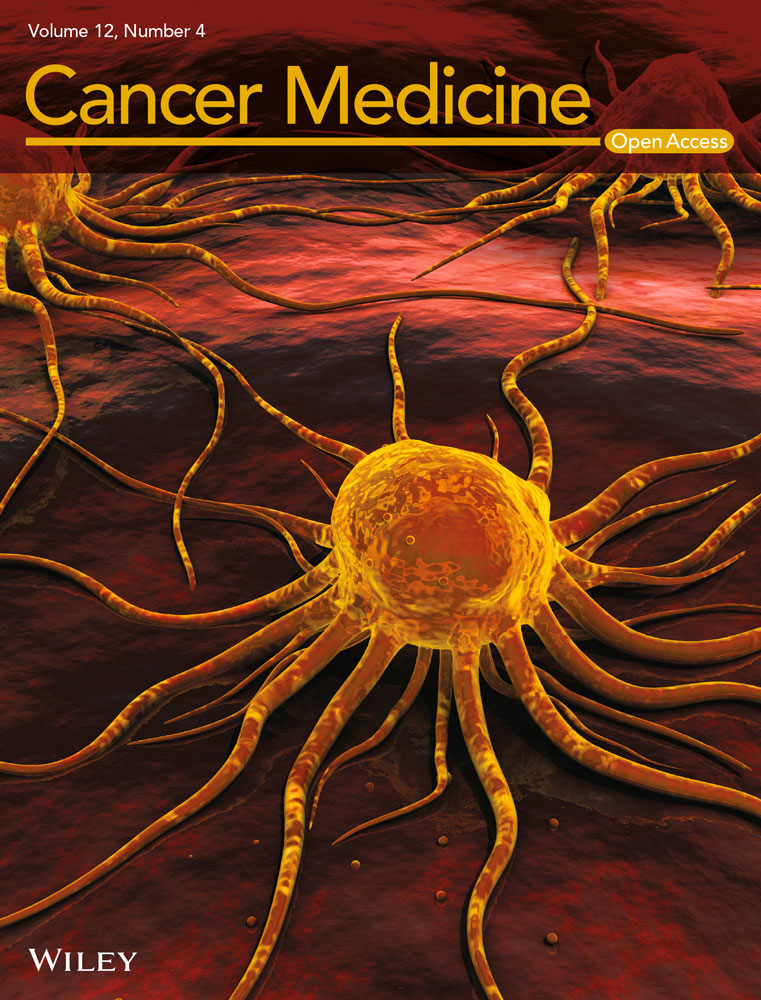Real-world outcomes among patients with advanced or metastatic biliary tract cancers initiating second-line treatment
Abstract
Background
Limited data are available regarding second-line (2 L) treatment for advanced or metastatic biliary tract cancers (BTC) in the US real-world setting. This study explores the rapidly evolving and growing treatment landscape in the 2 L setting for advanced or metastatic BTC with a large cohort of patients treated in a community oncology setting.
Methods
Adult patients with BTC initiating 2 L treatment after a platinum-containing first-line between 1/1/10- and 6/30/19 were identified from the US Oncology Network electronic healthcare record database and followed through 12/31/19. Baseline patient and treatment characteristics were analyzed descriptively, including overall response rate (ORR) in the real-world clinical setting. Kaplan–Meier methods were used to measure duration of response, progression-free survival (PFS), and overall survival (OS).
Results
The overall population (N = 160) included 74 patients (46.3%) with intrahepatic cholangiocarcinoma, 41 (25.6%) with extrahepatic cholangiocarcinoma, and 45 (28.1%) with gallbladder cancer. Thirty unique 2 L regimens were recorded for the study population, with folinic acid, fluorouracil and oxaliplatin (FOLFOX, 34.4%) and capecitabine monotherapy (20.0%) being the most common. ORR was 7.5% (95% CI, 3.9%–12.7%). From 2 L initiation, median PFS was 2.8 months (95% CI, 2.4–3.3 months), and median OS was 5.2 months (95% CI, 4.2–6.7 months).
Conclusion
Results from this study provide real-world evidence that although patients treated in the community oncology setting receive a wide variety of 2 L treatments, the regimens are consistent with those recommended by guidelines. Although responses are observed with 2 L treatment, duration is brief and associated with poor OS in patients with advanced or metastatic disease.
CONFLICT OF INTEREST
David P. Cosgrove reports employment at Compass Oncology, consulting fees from Daiichi Sankyo/Lilly and Merck KGaA, honoraria from Pfizer, and travel meeting support from US Oncology. Emily S. Reese reports employment with EMD Serono. Nicole M. Fulcher reports employment with Ontada. Sarah S. Bobiak reports employment with EMD Serono. Francois-Xavier Lamy reports employment with Merck KGaA at the time of the study. Arthur Allignol reports employment with Merck KGaA at the time of the study. Marley Boyd reports employment with Ontada at the time of the study. S. Hamidreza Mahmoudpour reports employment with Merck KGaA.
Open Research
DATA AVAILABILITY STATEMENT
The health data used to support the findings of this study are restricted by the US Oncology Institutional Review Board in order to protect patient privacy. For this reason, data used to support the findings of this study have not been made available.




